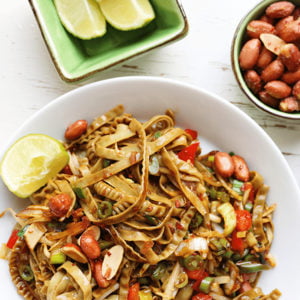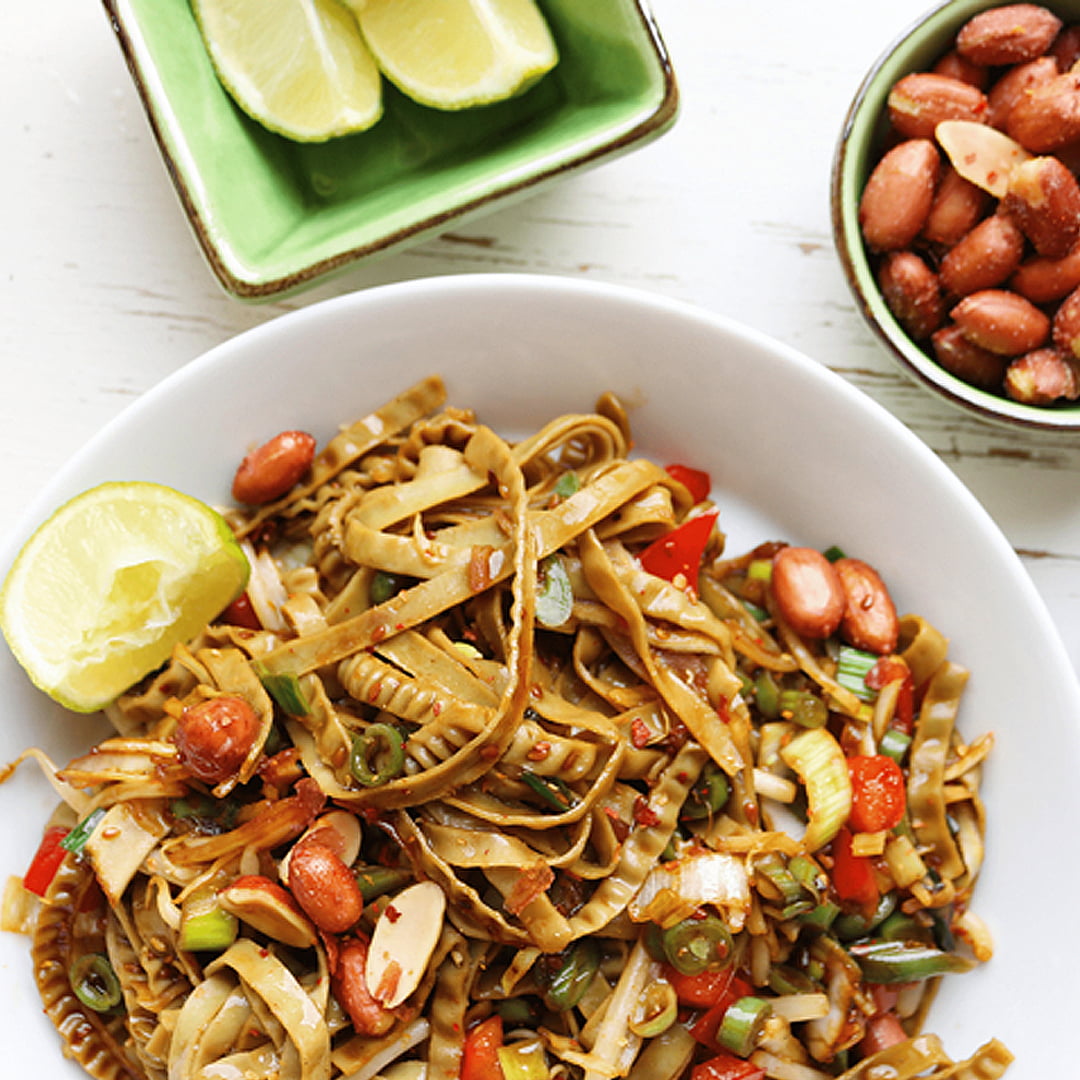Vegetables are fundamental to a healthy diet, offering a range of benefits due to their high nutrient density.
They are rich in essential vitamins and minerals, including vitamins A, C, and K, potassium, and magnesium, as well as dietary fibre, which is crucial for maintaining a healthy digestive system.
The fibre in vegetables helps promote satiety, reducing overall calorie intake and supporting a healthy gut microbiome.
Additionally, vegetables are loaded with various antioxidants and phytonutrients that help combat oxidative stress and inflammation in the body.
A study published in the “Journal of Epidemiology and Community Health” suggests that a high intake of vegetables is associated with a lower risk of chronic diseases, including heart disease and certain types of cancer.
Replacing beef with vegetables in a dish like Pad Thai transforms it into a lighter and healthier alternative. While beef is a good source of protein, it is also higher in saturated fats and calories than vegetables.
By swapping beef for various vegetables, the dish becomes significantly lower in calories and fat, making it a more heart-healthy choice. Additionally, vegetables add a spectrum of flavours and textures to the dish, along with an array of nutrients and fibre that benefit overall health.
However, when making this substitution, it’s crucial to maintain the meal’s protein content. This is where eggs, a key component in Veggie Pad Thai, play a vital role. Eggs are an excellent source of high-quality protein and contain all the essential amino acids in the right ratios.
They are also rich in B vitamins, particularly vitamin B12 and riboflavin, and provide nutrients like choline, which is important for brain health.
Research in the “American Journal of Clinical Nutrition” indicates that including eggs in the diet contributes to increased nutrient intake and can improve overall diet quality, especially regarding protein and micronutrient adequacy.
The combination of vegetables and eggs in Veggie Pad Thai offers a balanced meal, high in nutrients and fibre, yet lower in calories and fats compared to its traditional beef counterpart. This makes it an excellent option for those looking to maintain a healthy weight or reduce their calorie intake without sacrificing nutritional quality.
The eggs in the dish add protein and contribute to the meal’s satiating power, helping to keep you full for longer periods.
In summary, incorporating more vegetables into meals, as seen in the Veggie Pad Thai recipe, provides numerous health benefits, from reducing the risk of chronic diseases to aiding in weight management.
Replacing beef with vegetables results in a dish that is lower in calories and saturated fats, while adding eggs ensures that the protein content remains high. This combination offers a well-rounded, nutrient-rich meal supporting overall health, aligning with research emphasising the importance of a balanced diet rich in plant-based foods and quality protein sources.

Vegetable pad thai
Ingredients
- 200 g Flat rice noodles, or soya bean noodles
- 4 tbsp tamarind sauce
- 2 tbsp Fish sauce
- 1 tbsp Brown sugar
- 1/2 - 2 tbsp Chili flakes
- 2 tbsp Coconut oil
- 2 Garlic cloves, finely chopped
- 2 Large eggs, lightly beaten
- 320 Stir fry vegetables
- 50 g Roasted peanuts
- 1 Lime, quartered
Instructions
- Prepare the noodles according to the instructions on the packaging. In the meantime, mix the tamarind, soy sauce, sugar and chilli flakes.

- Heat the oil in a large frying pan or wok, cook the garlic for 1 min, and then add the sauce mixture.
- Let this bubble for a minute, and then transfer to a bowl.In the same pan, on medium-high heat, add the beaten eggs.
- Let them set for a minute without stirring. Once set, break vigorously with a wooden spoon. Add the stir-fried vegetables and cook for 2 minutes.
- Then add the noodles, pour over the sauce, stir well and cook for another minute or two.
- Serve sprinkled with peanuts and a squeeze of lime.
Notes
- Gluten-Free
- Dairy Free
- Vegetarian
- Quick
- Meal prep friendly
- Contains nuts - warning
